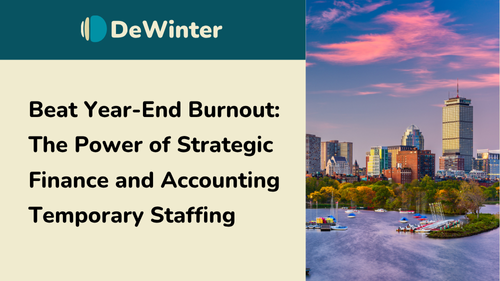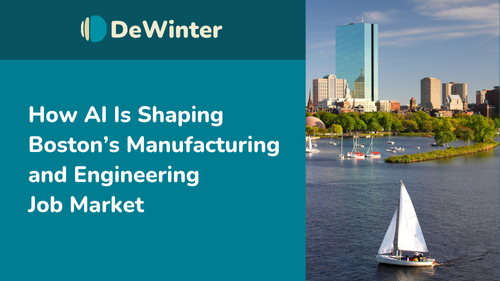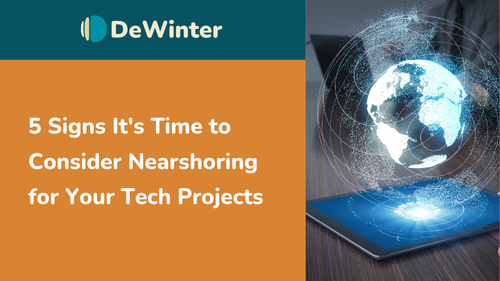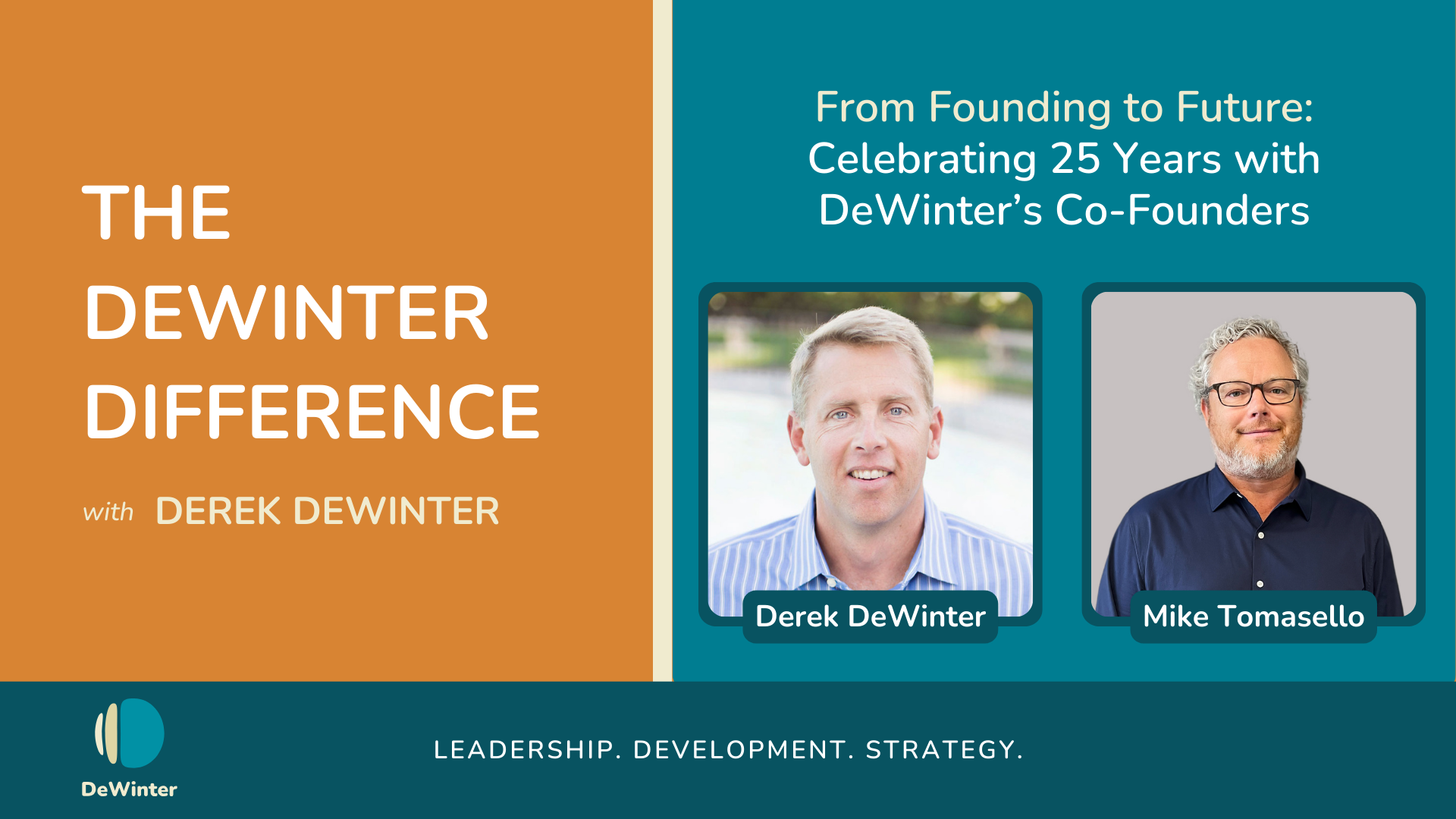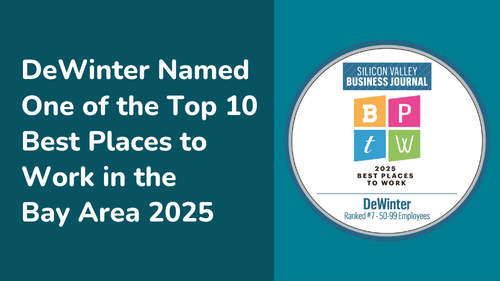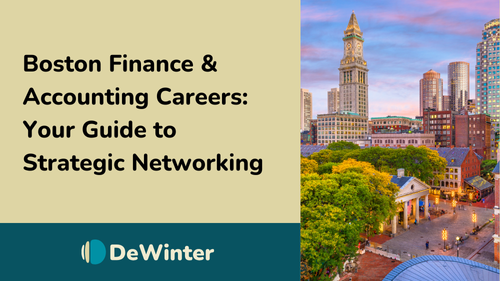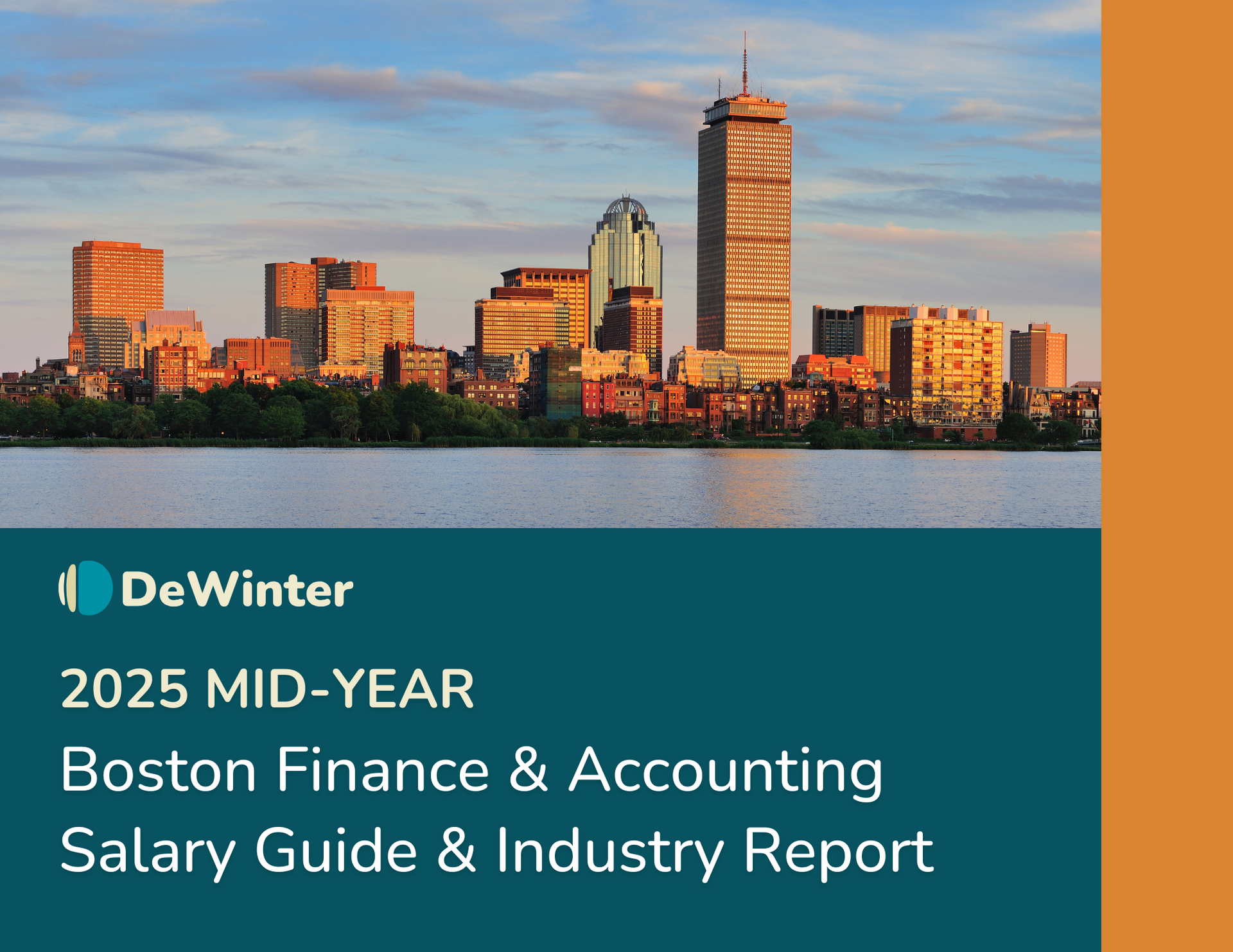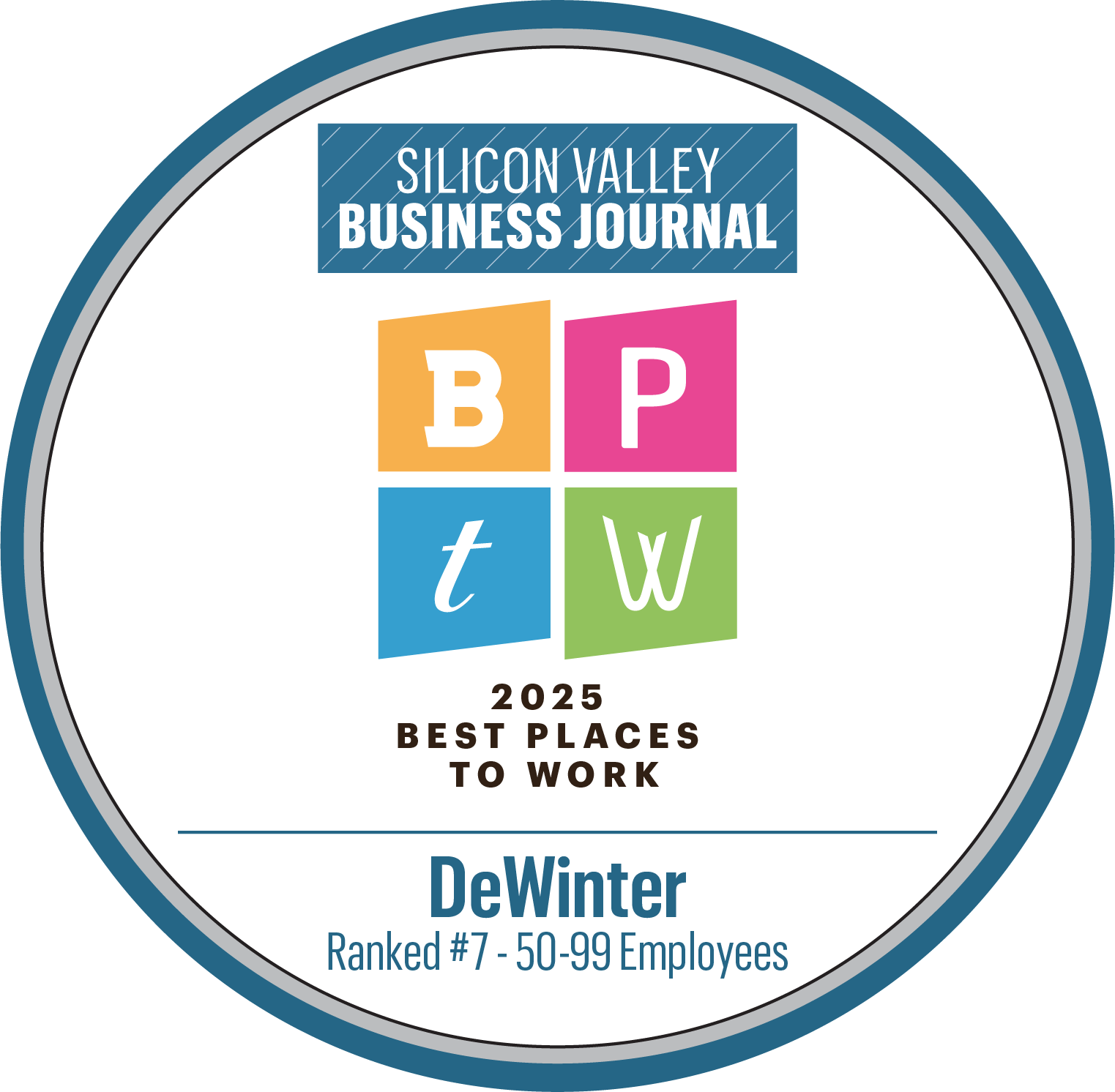About The Episode
In this episode of the DeWinter Difference, Derek sits down with Brad Johnson, Ph.D., and David Smith, Ph.D., co-authors of Athena Rising and Good Guys, to explore the critical role of male allyship in the workplace. As seasoned researchers and professors—Brad at the U.S. Naval Academy and Johns Hopkins University, and David at the Carey Business School at Johns
Hopkins—they bring a wealth of insight into how men can be more effective allies and
mentors for women.
Their conversation delves into the challenges and misconceptions surrounding allyship, the importance of engaging men in gender equity efforts, and actionable strategies leaders can implement to foster more inclusive workplaces. Brad and David share their personal motivations
for this work, lessons from their research, and how organizations can move beyond individual actions to create systemic change.
Whether you're a leader, mentor, or simply looking to better support your colleagues, this discussion offers valuable perspectives on making workplaces more equitable for all.
Transcript:
The Role of Male Allyship A Conversation with Brad Johnson PhD and David Smith PhD
Derek DeWinter: Hello, everyone my name is Derek DeWinter and welcome to our listeners who are tuning into the DeWinter Difference, an audio podcast where I spend a bit of time with incredible people I've known for years and you get to listen in. I hope that our conversations are insightful, fun, challenge us all, make you think a little and are just long enough to listen to while running an errand.
Our goal is to have a good time and provide something that you can apply in your own career, life and relationships. Today we're speaking with Brad Johnson and David Smith. Brad is a professor of psychology in the Department of Leadership, Ethics, and Law at the U. S. Naval Academy, and a faculty associate in the Graduate School of Education at Johns Hopkins University.
David is an associate professor in the Carey Business School at Johns Hopkins University.
Together, they coauthored two books, Athena Rising, How and Why Men Should Mentor Women, and Good Guys, How Men Can Be Better Allies for Women in the Workplace. Now, this is a bit of a departure from our typical conversations with a CFO, CEO, or CHRO, and that we've had in our podcast in the past, which on its own is a great reason to do anything. For all of those out there leading organizations, developing teams, teaching and promoting high achievers, then Brad and David are well worth the listen. Me, maybe not so much. Gentlemen, it's a pleasure to have you join me.
David Smith: Thanks for having us.
Brad Johnson: Great to be here.
Derek DeWinter: So where to begin? Well, all good stories need to start, so let's start at your beginning. In no particular order, share a little bit about how you two met, what you're spending the bulk of your time on today, and how this concept of male allyship that you discuss in your books and and in other conversations that you have, probably also started taking shape along that journey.
David Smith: Yeah, glad to do that. I'll start here. This is David and, you know, Brad and I met when we were both teaching at the Naval Academy. We were both professors there at the same time. We overlapped for about seven years, I think Brad and I very quickly recognized that we had a connection in terms of our work, our research, and our teaching and as we began to explore that, I think we found a kind of a common area of interest that we were interested in.
A lot of our own individual research that we do, Brad is a clinical psychologist. He's done all of his research in the area of mentoring and career developmental relationships and resources. I'm a sociologist, and I've done all my research in the area of gender, work and family issues. One of the things that we noticed in our own organization at the time, and as well as across many other organizations, is that we wanted to explore often the solution to what we view as gender inequities.
For example, a lack of representation of women and senior leadership positions in your organization, or just a lack of gender parity broadly in your organization, the solution is often to focus programming and resources toward things like women in leadership programs or women's mentoring programs, which are great.
Those are much needed, the challenge with that is that it often sends a signal to men that you don't have a place there. It's not, that's not for you, you don't have a role or a function, so, they don't engage and they don't see their place there. The challenge with that is we need, of course, all of us involved in creating equity in the workplace to level the playing field there.
We need men involved just as much as we do women in collaboration to do this work. We love to look at this as more of a leadership issue that we all men and women as leaders have a role and a function when it comes to creating that, and we certainly saw a lot of the disparities in our own research.
This kind of got us more curious about how do we engage more men in doing this work and how do we level the playing field? That's what began this collaboration. I will also tell you that for both of us, that we both kind of have personal connections to this work in terms of people, women in our lives who have shared some of their experiences.
For me, it was my wife who had a parallel career in the military. For Brad, it was his sister again, followed in his footsteps in terms of both the Navy and in psychology and they shared a lot of their, the challenges, the barriers, the microaggressions, the things that they faced that really get in touch with that sense of fairness and justice that I think we all have.
I think that was a great motivating factor for us as well. We use that to really explore in our work, that's of course led to our first two books, Athena rising, and then later on good guys, which focuses on allyship. As far as what we're focused on today, we're in the process of really thinking about how to take this to the next level in terms of changing systems.
We've been focused so much on individually around people, which is important because we need to do that. As leaders, we need to think about how we help managers and the everyday person on the floor be great, be a great ally in the workplace and be part of the solution.
But at the same time, we know there are everyday practices. There are parts of our culture, there are policies and processes in our organizations that reinforce bias that are creating some of these things that are, you know, holding us back from getting to true gender equity in the workplace. Our focus right now, the work that we're doing and really moving toward our third book is on how do we create that in the workplace?
What are leaders and organizations doing today that are having great success there, how can we extrapolate that to other organizations, maybe of different sizes, different sectors, different industries out there so that we can all kind of share and learn from each other in doing this.
We're trying to bring together all these great best practices, which fortunately there are a lot of them, but that's also the challenge of how do you boil that down and get that into a book? So we're really excited to launch this new venture.
Derek DeWinter: It's a good foundation for us too! To kind of the listeners, especially to kind of conceptualize this conversation and where we kind of want to take it. Brad several years ago, I attended an event as part of a women’s organization that I was on the board of, and you were presenting on this topic of allyship, which honestly, I hadn't really heard it spoken to so specifically before.
One of the exercises that we went through at the time was for a man, which I was one of several that were there out of a group of about 100 or 150 people to approach a woman about being a mentor or ally for them. I was on a round table with another man and between the two of us, we did a terrible job in our mock session.
It was a very intimidating thing to do without a lot of planning for what I was going to say. Because the exercise wasn't preplanned, I didn't really know about it, I came off as almost predatory and I wish I had a different word for it, but that's the one that I keep coming back to again and again, I hate to use the word predatory, but I was pitching the idea of being an ally to someone who, even in this exercise, immediately seemed to give off some concern about the authenticity of the overture.
There are certainly right and wrong ways to do it, I probably did it the wrong way in that exercise. So I'd love for you to talk about some of the things that you've heard in your experience, for us to combat this notion.
Brad Johnson: Yeah, well, well first of all, Derek you know, thanks for your courage and giving that a shot. I know that it's not easy in these workshops to kind of bust out your ally chops and give some of these ally skills a try. So, you know, I think this was probably exercise around, Hey, if I see a high talent woman in my organization, there are probably lots of them. How do I go about initiating a developmental relationship conversation? And Derek, I'm going to give you a different word other than predatory. I think it can sometimes come off as a little creepy, maybe that's a little softer than predatory, but you know I think it's natural, but men may show up and say something like this.
I'd like to mentor you, right? and I just use my creepy voice, which you never should. But I think we can get it wrong when we do this offer without any context. She, of course, has no idea what you are talking about? Where did this come from? It's quite different to sort of come alongside and build in some affirmation, make it authentic and say, hey, you know, I saw you do that talk last week in the meeting. I thought it was really great. And I was thinking to myself we're really lucky that we got to hire you, and I was also thinking, I hope we can keep you on board so, you know, if you ever just want to talk about next steps in the organization, what that might look like, if there's any way I can support or amplify that I've got an open door, feel free to drop by.
Right? That's a little different, right? It doesn't have the creepy vibe. It's an offer, but there's context to it and I'm able to convey to her some of what I already admire about her performance and the way she shows up. Now it's over to her, right? To decide if she wants to take me up on that, I think that feels different.
I don't think it feels uncomfortable and you know, now it's up to her, but I think most people would probably take me up if I was a senior person in the company, I think they'd drop by. So that's maybe just an example of how that might look. One other example, Dave and I, you know, often encourage men to build what we call their GQ, their gender intelligence.
I think when it comes to allyship, it's really important not to put all the work on women to educate you about what they experience in the workplace. So how about self-educating, listen to some great podcasts like this one, learn about some of the headwinds women encounter, and then go to some of those trusted colleagues that you have who happened to be women and just say, Hey, I was in this session I learned about this, and I'm really curious if this is going on here or if there are things I am missing and would it be okay if I asked you about some of your experiences here? So, Dave and I call this the ask, you know, I think that kind of overture really conveys your curiosity, your interest, your humility.
I think a lot of people are willing to share with you about what they may be encountering in the workplace with you as a majority male or not. So that's just another kind of contextualized way to begin a conversation.
Derek DeWinter: You are both incredible presenters, the topic is awesome and I can't help but wonder, there must have been a few times, maybe in the early stages of talking about this, where the conversation landed poorly or awkwardly, you know, in a room or you got a very unexpected response from a group of people around male allyship.
Am I wrong in thinking this? Or is that something you can talk about a little bit more?
David Smith: You're not wrong at all and it's probably no surprise, but it often comes in more majority male audiences and, and there could be, you know, it really comes in the form of often some pushback or at least some very, very in depth questioning about the validity or what we're really talking about here.
I think that you know, when we first started doing this work, just to be very, very honest and open about this, I think, you know, early on, that was one of those kinds of fears, right? If you don't want to be in that audience where you're going to get all the pushback. I think what we learned along the way is that we really do want people to push back and in areas that they don't understand or they're not comfortable with or they have other ideas.
Because this gives us an opportunity to engage in the conversation around why we think this is important or to understand different ways and perspectives of thinking about this. I think that's very helpful and so something that may have started out to be very uncomfortable in dealing with I think we quickly recognize that this was actually very helpful, and we do want people to ask the hard questions or the maybe what may seem like a very uncomfortable question or pushing back on some of the concepts that we have and about why this is true, or, you know, and for example, zero sum beliefs are one of those things that we often encounter with again, a lot of majority identities certainly with a lot of white men.
And that, you know, somehow by advancing another group like women, that somehow men are going to lose in that and not understand maybe the, the perspective of understanding that, well. You know, businesses and organizations and people all tend to advance and to gain more when we expand the pie and do it this way.
There's a lot more in it for your organization and your business, no matter what that is but two, there's more to be learned and to be gained individually for you as a person and as a leader. When we diversify we increase the gender equity within the workplace and make it a place where again, everybody can thrive.
The other thing is that policies and practices that we end up changing, for example, more men today, especially as we think about younger generations of men entering the workplace have expectations about being more involved parents and partners at home so they're looking for a workplace that's supportive of that.
So again, as we begin to normalize things like caregiving and who we are as caregivers in the workplace, that again, tends to be associated more with women. Well, if that becomes more normalized, then it's acceptable for men to be doing that as well and so again, we can be gaining in lots of other ways that people are looking for, maybe not so eager to talk about in different ways.
Brad Johnson: And let me add one more, Derek, that is the other part of the audience. It's often there when Dave and I are speaking to women, I think that we have encountered pushback at times from women. And I think initially we were a little surprised by that, like, hey, we're women, we're trying to be part of the solution here on gender equity. What's the deal? I think we had to learn some humility around how women can experience this. If men sort of bud in to, you know, maybe it's a women's ERG or a women's conference, you know, these are safe spaces historically for women to get together, share what they're going through, collaborate with each other.
These have felt like, I think, almost sacred spots for women to have one place free of, you know, sexism and microaggressions. So when men show up, understandably, some women can, you know, feel put off by that. I think we all have to show up with some real humility. I hope that we can get invited in because, you know, the World Bank estimates we've got roughly 200 years to close the gender pay gap and other inequities in the workplace at our current rate of progress we're not going to get there quickly unless men start leaning in, but how we collaborate with women matters is cannot come off as intrusive, it can't come off as rescuing and white knighting.
So men who show up in this space need to be collaborative, need to listen and need to ask women hey, what do you need from me or how can I be helpful?
Derek DeWinter: You've got a third book coming out, which you talked about a little bit more of a systemic look at the topic. How much work are you guys doing at corporations specifically on this topic? Or is it just books and speaking engagements? Help me understand that a little bit.
Brad Johnson: Yeah, great question. I can mention a few things, Dave, and I'm sure you'll think of others you know, we do the keynotes and the speaking for sure, but I think more and more, Derek, I think organizations are interested in not just the keynote, which can be inspirational and give kind of a level set for everybody in their organization about, why allyship, what's the business and moral case? Why are we talking about this? What's in it for everybody? And here are some tactics. More organizations are interested in how we upskill?
So Dave and I find ourselves doing more workshops and, you know, those are both workshops with men. These can be men in senior leadership roles, they can be men writ large, but these are men who are leaning into partnering with women in the organization to really be better allies for inclusion and equity.
I think a lot of men believe in this, that's what we find. They just often don't know what to do so that's really the solution that we're after. How do we upskill people, bring them in, let them have collaborative conversations, kind of like you, Derek, at that workshop you attended, let's practice, you know, some of the micro skills.
We also do it with mixed gender audience, and I think I don't want to speak for Dave, but I think for both of us, that's really kind of our favorite when we can talk about gender collaboration broadly, and then let both men and women and non binary colleagues engage in these conversations and practice moments.
The learning is so rich when you're doing that at a table with colleagues who don't look like you. So the skill building workshops, and then interestingly, we've been pulled into doing a lot of sponsoring work. I think a lot of organizations are saying, hey, the mentoring thing's important, and Dave and I do a lot of that as well, but we really want to get to advocacy.
We're not going to close this gap until men, especially start getting comfortable with loudly sponsoring, loudly advocating for women, becoming their raving fan. We want to put resources into that we've been involved in setting up and launching a number of sponsoring programs across gender, but Dave, anything else comes to mind.
David Smith: Yeah, I think that covers most of it, a lot of it tends to be focused on more kind of cultural shift in the organization as well and making it a place where it's not only safe to talk about some of these topics, but encouraged to share and to talk about what's the challenges that people are facing.
I think we're really looking to move in the coming years and are really getting back into the organizations to think about their specific practices, right? What are the structural things that need to change right before we could have lasting change? And we can create change for many people, lots of people, as opposed to just these one on one encounters that we're focused on right now.
Derek DeWinter: You both spent a fair amount of time at the Naval Academy, and this is not a question that I gave you advance warning on, I'm curious if being in that institution, that environment advanced some of these thoughts in a way that you may not have been able to advance them in a strictly corporate setting.
I'm not even sure that was an actual question, that's more of a statement, but like, is there an idea in that or not? Is the Naval Institute a place where you can kind of think about things a little bit differently and maybe apply them in, I shouldn't say the real world, but a different world, you know, outside of that?
David Smith: That is an interesting question you know, I think the military context in that it's again longstanding, very traditional hypermasculine institution and profession presents a lot of similarities as it turns out to other professions. So as you think about medicine and law, for example, there's a lot of commonality and even academia broadly the Naval Academy is kind of that blend between the academic world and and the military.
So we get two professions you know, in getting the best or the worst of, and both of those as you think about it so I think that it did provide the context for us in our work. Our own experiences having been around the military for so long to think about how things work or don't work and how these would apply and some of the things that we've encountered.
I think it certainly informed a lot of the questions that we had as we began doing the research and how we were going to explore this. I think it also equipped us in understanding how, again, a group of people focused on a mission, a purpose focused group, right? The military and people focused on being leaders.
Leadership is important, right? It's a critical part of who we are in the military. I think that gave us that context in a way to talk to audiences in other professions and other industries and other types of occupations out there. They're different and I think that one of the challenges is finding the nuanced differences of what can I leverage in the culture of this occupation or profession that's different than maybe the military or another legal profession and use that to your advantage.
Because again, I do think there are differences in the cultures within these different professions that allow you to leverage different things and you should look for that.
Brad Johnson: I think two other things come to mind for me, Derek. I mean, number one, one of the inspirations for our first book, Athena rising was these women we worked with at the Naval Academy. These are incredibly inspirational, incredibly talented and tough young women who are preparing to go lead sailors and Marines in combat.
When they graduate, I think, you know, our sense was that if more men around the country could engage with some of these women, I think we could solve gender inequity much more quickly because it would so shift their mindset on women and their capability and I just think it would build a whole different framework for a lot of men who maybe are suffering from some real embedded gender bias, they don't understand fully.
The other thing about the military is, you know, we have the luxury in the military of making this, as Dave said, a mission driven organization. So when the four star admiral, who's a CNO says, make it so we are going to incorporate women into this specialty, you do it. You know, those are your marching orders, right?
And everyone falls into line, this is about the mission and we know we're gonna be better and stronger if we get this right. So people fall into line and I think that's a luxury a lot of organizations don't have, and there's something valuable about that.
Derek DeWinter: Well, we've talked a little bit about the unfamiliar territory. This topic is, amongst others, to men, they're a minefield, they're full of trapdoors, vernacular that you get thrown around that you don't understand, even references to pioneers, female pioneers that are doing amazing things that men just don't naturally see.
They're not around it nearly as much, they're not part of these sacred circles where those conversations happen more naturally. Do you have any advice? Just quick advice for a guy out there, it's like, all right, I really would like to lean in but I'm a little nervous or I'm a lot nervous, where do I start?
Brad Johnson: Yeah, there's so much here, you know, Dave and I, in our first book Athena rising described this as reluctant male syndrome, right?
There's so many things that make us men uncomfortable with leaning into this idea or the topic of allyship really, frankly, just anxious about close relationships with women.
Maybe it's mentoring, maybe it's friendship, men are reluctant and there are different ingredients, you know, maybe I don't want to step in it, get it wrong. Maybe I'm afraid of gossip or rumors, if I start mentoring a junior woman, maybe I've got implicit bias. So I see women as nice, but not really leadership material.
You know, maybe I'm afraid of getting “me too”, I put that in quotations. A lot of false narratives around Me Too that have allowed men to sort of avoid women post Me Too you know, with the false narrative that women are dangerous. I will just tell you as a clinical psychologist, and I spend a lot of time reminding men of this, there's only one cure for anxiety and that includes anxiety about women, it's called exposure therapy.
More engagement, more interaction, more lunches, more coffee, more mentoring. Don't make that her problem, you know, if you're feeling the anxiety, you need to address that yourself because your organization is going to be held back. If you don't lean on some other ingredients for overcoming this, get comfortable being uncomfortable, right?
You know, a lot of this is new to you. That's fine, you need to take the first step and start showing up at maybe the women's ERG or other gender events. Start learning and start having more conversations with female colleagues. When you step in it, when you get it wrong, when you learn something, share that with other people, you know, maybe other men say, here, I really got this wrong today in a meeting. I got feedback about it, I had no idea I was doing this, I'm sharing this with you in a spirit of humility. Maybe you can learn from my mistake and I think I'm better for having learned that, so those are just a few ideas.
Derek DeWinter: Well I've asked you both a bunch of questions that you've been so thoughtful about answering and the final part of our podcast is me flipping the script a little bit and throwing it to you guys to ask me a question which I don't know what it is and so I'll do my very best to try not to step in that trap door myself, so I'll let you have at it.
Brad Johnson: Okay, well Derek, it won't shock you. I got to follow up my last comment by just asking you, you know, have you had one of those experiences that Dave and I have experienced almost every month in the last 12 years where you kind of got something wrong maybe in the space of relationships with women.
To be an ally, maybe in a meeting you did something or said something that didn't land well. Was there an example, you know, something that came to mind and then how did you pivot from that? How did you learn from it? How did you recover? Because often these are sort of epiphany moments for men so I just wonder, is there something for you?
Derek DeWinter: Well, I'd be lying if I said it doesn't happen often enough to be dangerous. Like I can't give you a specific example right now. Maybe I don't want to be on air but it happens, and I think the important thing that you talked about was like being in a comfortable enough place where you could actually acknowledge it again. Share it with somebody, share it ideally directly with the person, in my opinion, who maybe did take something the wrong way or find what you said uncomfortable or whatever it might be.I think the important thing is to not brush it under a rug because then you can't be better for it.
You know, I first started my journey on being part of women's organizations about 10 years ago when I was asked to be the only man on the board of a women's organization called Watermark and being the first man in the door was really exciting and really daunting.
I found myself in the first several board meetings not expressing my opinion much and doing a whole lot of listening, which I don't think is a bad idea, by the way. My very first introduction to that organization was one of the board members coming up to me, up to me saying, Derek, I did not vote for you to be on the board.
Brad Johnson: Hmm.
Derek DeWinter: I thought to myself, well, this is, this is a crazy introduction. How am I going to fix this? And my response to her was, well, it will be up to me to make you change your mind. So, you know, I take that into consideration when I'm having these reflective conversations with people. It's up to me to make you change your mind about the things that I'm saying.
It's up to me to make myself a better resource, a better mentor, a better advisor, and a better person in general. So that was very long winded.
Brad Johnson: I love that example.
Derek DeWinter: Well, and so a little commercial for the two of you, how do our listeners get a hold of you for speaking engagements for anything related to this topic, other than obviously going to your favorite bookstore and picking up a couple of books and a third on the way?
David Smith: Yeah, you can. I think the easiest way is just to go to our website and that's
workplace allies and you can find out the latest on what we're up to and reach out. We can certainly talk about things if there's ways you would like to collaborate with us.
Derek DeWinter: Fantastic, well on behalf of everybody who's listening, I thank you for the great work that you're doing. You're two incredible men, leaders, fathers, and resources to our country. In addition to being great sociologists and psychologists so thank you for your time. I appreciate it very much, and I hope you guys have a fantastic day.
Brad Johnson: Thanks
David Smith: Thanks
Derek DeWinter: Thank you so much for taking the time to listen to the DeWinter Difference podcast. If you like this episode, head to dewintergroup. com backslash DeWinter hyphen difference to catch future episodes and share your thoughts, comments, or suggestions, and make sure to connect with us on LinkedIn, Facebook, and Twitter.
This podcast is produced by the DeWinter Group. The leading recruiting firm in the Bay Area and beyond. We help top companies and people reach their fullest potential through world class accounting, finance, and technology recruiting services.
Listen now at the streaming sites listed.
Learn more about the DeWinter Difference podcast here and share your thoughts and comments below.

